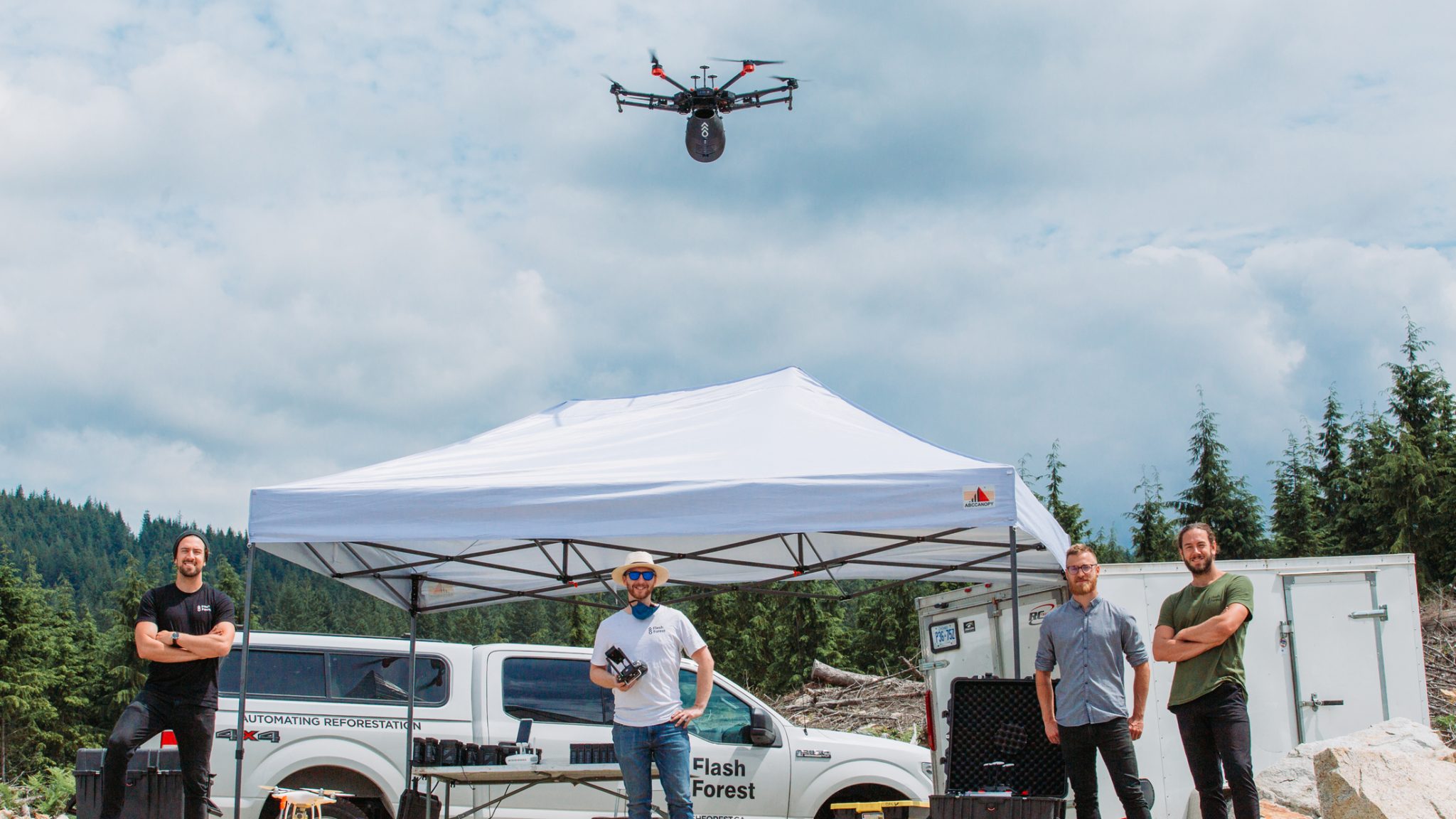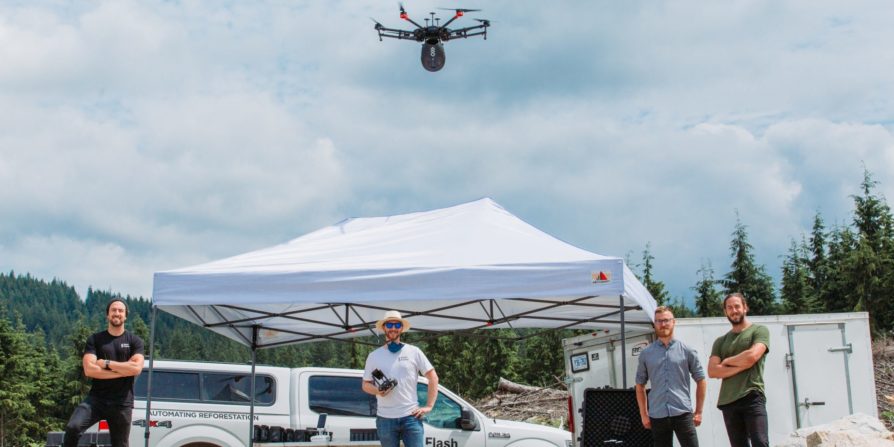
Flash Forest: revolutionizing reforestation with tree-planting drones
As we navigate a global pandemic and a just recovery, we want to amplify the stories of those who are working towards a low-carbon future. To build a vibrant low-carbon economy, we’ll need innovative tech that supports our needs while preserving the environment. That’s why Bullfrog Power is sponsoring the Centre for Social Innovation’s Earth Tech, an accelerator for startups and nonprofits working on climate and freshwater solutions.
Two of Flash Forest’s co-founders were tree planters in their youth. They camped alongside forestry workers, and the contrast in technologies was all too clear: logging companies had advanced machinery, automation, and artificial intelligence at their disposal, while tree planters were still using bags and shovels.

Because of their carbon-sequestration powers, trees are among our most important defences against climate change. But the tree planting industry has barely changed in the last century. Bryce Jones, founder and CEO, and his fellow co-founders saw an opportunity for innovation, so they started Flash Forest—Canada’s first-to-market drone reforestation company.
“Right now, planting trees is the fastest and cheapest way to sequester carbon,” Flash Forest’s Chief Operating Officer, Cameron Jones said. “We use drones, aerial mapping software, and automation to make reforestation even faster.”
Flash Forest’s drones fire seed pods into the ground at a rate of one per second. The pods are packed with nutrients and seeds that will soon begin to sprout and grow—with help from more drones that spray them with nutrients and monitor their health. These modern techniques enable Flash Forest to plant at ten times the normal rate and at 20% of the cost.
Seeing the forest for the trees
Cameron is an environmentalist and an advocate of climate change mitigation. After working on climate issues for government, nonprofits, and think tanks, he decided that he could make the biggest impact by helping his team modernize the reforestation industry. “We took a stab at it, and the support we received from the community gave it a life of its own,” he recalled. “Now we have some of the brightest engineers, scientists and entrepreneurs I have ever met on our team.”
The company’s first major win came when they mounted a drone with their pneumatic firing device and planted more than 200 pods in 160 seconds. “That was the first time we proved we could operate at speeds not possible by hand,” Cameron said. “Our next challenge was to get germination rates well above our target threshold and get seedlings to survive three weeks without water. At that point, we knew we had a product that would work.”
The team’s momentum was at risk of flagging once COVID-19 hit. The pandemic forced 3D printing shops to close, so they had no way of testing new parts for their equipment. “Thankfully, the Centre for Social Innovation opened up their tool library on a few select days for our engineer to go in alone and conduct critical tests,” Cameron said. “If it weren’t for that, we may not have been able to run our pilots in B.C. this spring—our most critical milestone yet. Nimbleness and a desire to help were consistent in all of our interactions with Earth Tech.”
Barking up the right tree
Flash Forest’s next step is to get their seedlings to survive and grow four to six inches tall, where they’ll be more likely to withstand winter conditions. To hit that goal, they’ve hired a senior plant scientist and forged an academic partnership with one of the world’s top forestry schools. “The partnerships we forged with universities are what I’m probably most proud of,” Cameron said. “We now have access to some of the best minds in Canada, and every party working with us shares an equal commitment to our goal of carbon sequestration and environmental reclamation.”
Cameron is experiencing firsthand how tech can transform the face of environmentalism. “There’s no reason why the best coders, engineers, and scientists should not be applying their skill sets to issues like climate change,” he maintains. “Most young people care passionately about these issues but haven’t had many outlets to apply their skills—I see this changing radically in the decades ahead.”
“There’s no reason why the best coders, engineers, and scientists should not be applying their skill sets to issues like climate change.”
Cameron Jones
At full capacity, Flash Forest expects a single drone operator to be able to plant 100,000 seed pods a day. With an average tree absorbing more than 40 pounds of carbon dioxide per year, their automated reforestation methods have the potential to make a significant dent in our emissions footprint. And with an ambitious goal to plant a billion trees by 2028, Flash Forest is one startup that’s rising to the challenge of the climate crisis.
Curious about other Earth Tech ventures? Click here to read how Project Neutral is helping make carbon visible and setting people on a path to fight climate change.
